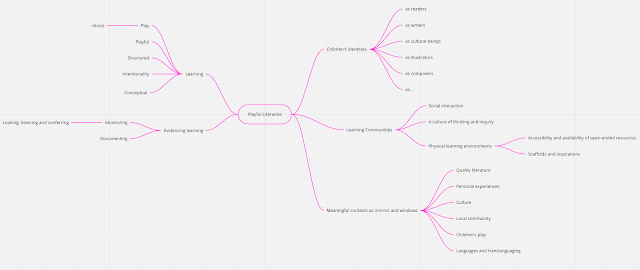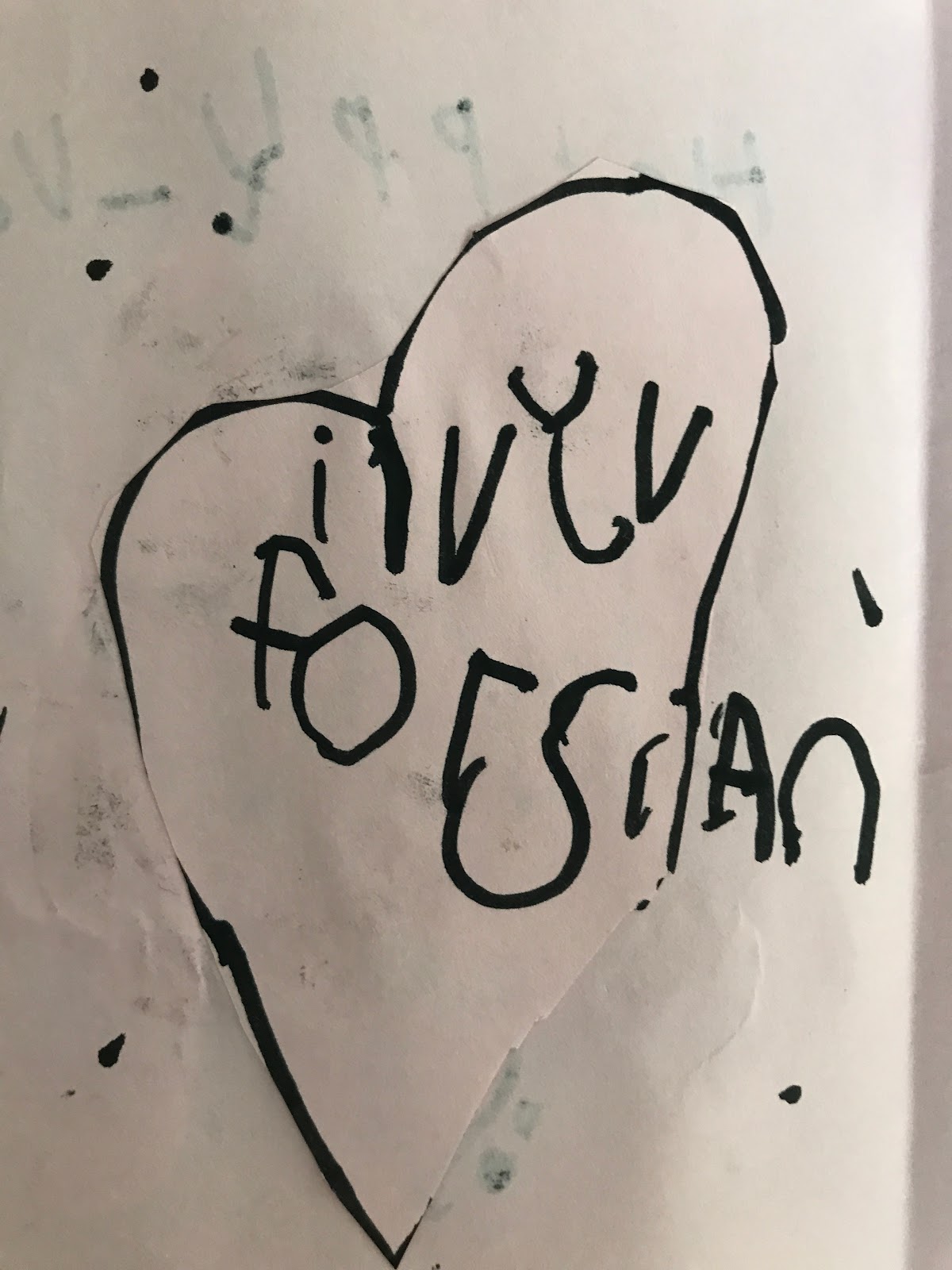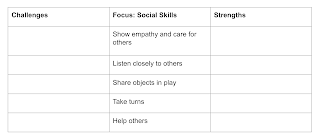Mind Mapping Playful Literacies

This blog is about me as a learner. Last week, I viewed a webinar led by Diane Kashin on mind mapping. I am also currently mid-way through a 4-week course on playful literacies facilitated by Jo Fahey. I was struck by what I was learning, how I was learning and the role of the facilitator. Diane described mind maps as documents that make learning visible. Before using mind maps as pedagogical documentation, I wanted to play with mind mapping myself and decided to map the big ideas of the playful literacies course. I used Miro, a free online platform, to map the big ideas. The structure of a mind map allowed me to identify, reflect on and refine the big ideas themselves and the connections I was making. There is a great flexibility to this tool and I look forward to making new connections and adding to the mind map in the next two weeks. I also plan to use mind mapping using visuals with Kindergarten. I am also interested in playing with this way to plan responsively and mean...


